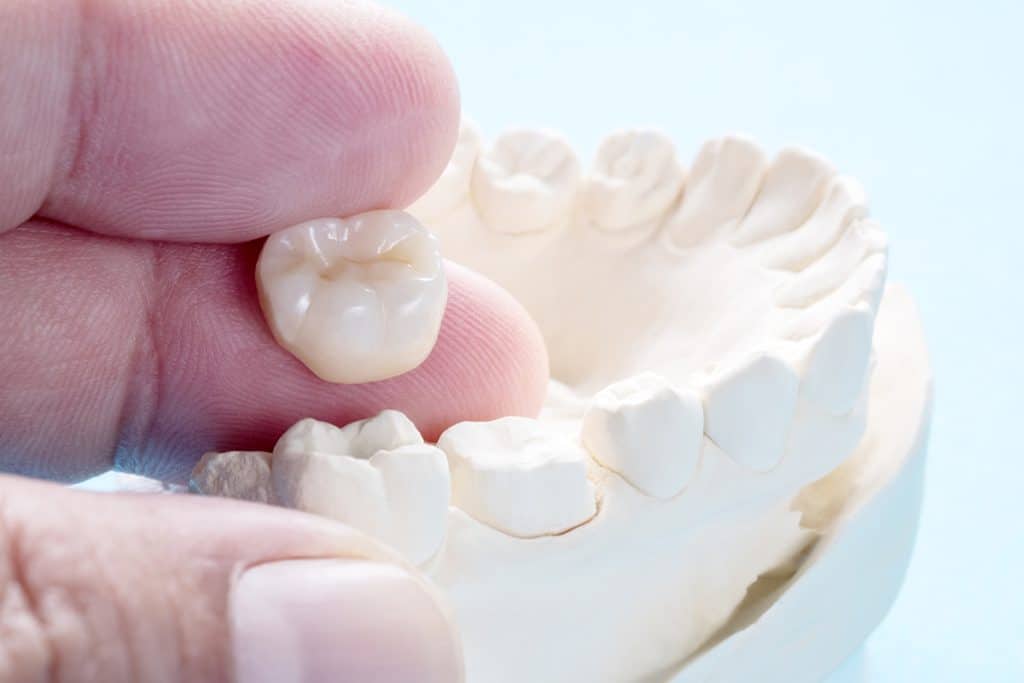How Long Do Dental Crowns Last?

Dental crowns protect damaged or decayed teeth from extraction. They are attractive, long-lasting restorations that promote normal chewing ability.
Dental crowns often last between five and 15 years, though they can last longer with proper maintenance and care.
About Dental Crowns
Dental crowns are versatile restorations that repair teeth suffering from damage and decay and those that have undergone root canals. Crowns also have cosmetic applications and can cover a discolored tooth.
Placing a Dental Crown
Getting a dental crown is a simple process that usually requires two appointments: preparing the tooth and placing the final restoration.
First, your dentist will thoroughly examine your tooth and assess how best to prepare it for the crown. The dentist removes damaged areas and shapes the remaining healthy tooth to accept a crown.
The dentist takes physical or digital impressions of the shaped tooth to ensure a perfect fit. The dentist will also help you choose the proper crown material to meet your needs. You will go home with a temporary crown to protect your prepared tooth.
A laboratory makes your final crown and sends it back to your dentist's office for placement. During placement, the dentist will adjust the crown to create a natural, comfortable bite and permanently cement the crown to your prepared tooth.
Available Crown Materials
Porcelain
Dentists often choose porcelain crowns for the front of the mouth because they have the most lifelike appearance.
Metal Alloy
Metal crowns are durable and often a great option for patients who habitually clench or grind their teeth. Dentists primarily use them on back teeth.
Porcelain Over Metal
Porcelain over metal crowns combines the best of both materials, having the toughness of metal with the attractive quality of porcelain.
Gold Alloy
Gold alloy crowns are the most costly but also the most durable.
Tips to Extend the Life of Your Crown
- Keep all of your regular dental appointments so your dentist can check your crown's performance.
- If you often grind or clench your teeth, you may need a custom night guard to prevent damaging your crowns. You can also choose metal or gold crowns.
- Brush and floss daily, practicing excellent oral hygiene as your dentist recommends. Ensure that you floss around the crown to prevent food and debris build-up.
Frequently Asked Questions About Dental Crowns
Does a crown hurt more than a filling?
Today, both procedures are comfortable, thanks to advances in local anesthesia. You will probably not feel any discomfort when receiving a crown.
Can you get a cavity under a crown?
Cavities can occur under crowns. Ensure you maintain a healthy brushing and flossing routine to minimize cavities in all your teeth.
Call Queen's Crown Dental
Dental crowns can enhance your smile and protect your natural teeth from extraction. Please call our Honolulu, HI, office at 808-526-2800 to schedule an appointment with one of our expert dentists today.


